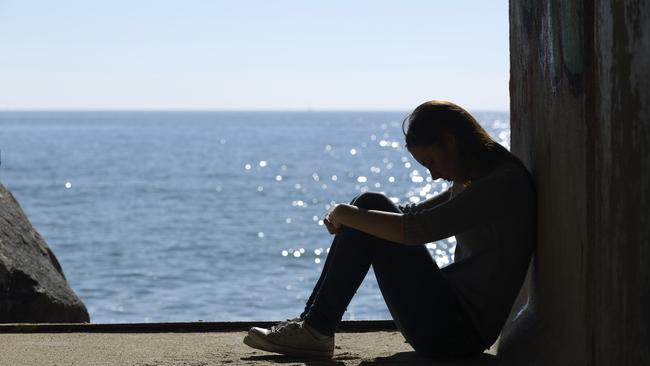Gladstone’s alarming mental health problem in the spotlight
Women are more likely to talk about their mental health issues than men.

Gladstone
Don't miss out on the headlines from Gladstone. Followed categories will be added to My News.
MENTAL Heath issues are impacting one in five people in Gladstone and a new report from the Australian Institute of Health and Welfare show just how dire the situation is.
The Australian Bureau of Statistics National Health Survey shows Queenslanders are not immune from the numbers, with one in five people experiencing mental health and behavioural conditions.
Local mental health professional Jo Paringatai said the COVID crisis had a significant impact on the number of people seeking help locally, with a drop in presentations.
“The number of acute presentations appear to have reduced during this time maybe as it is too difficult to access services or due to people feeling too anxious to present at Emergency Departments so less people are seeking help when needed,” she said.
“Once restrictions lifted then presentations were back to normal; COVID may have prohibited people from help seeking.”
The survey showed 26 per cent of people aged 15 to 24 suffered mental health issues, with Ms Paringatai highlighting more females, 22 per cent, were reporting issues than males at 18 per cent.
“Females are probably more likely to talk about issues such as anxiety,” she said.
“(It is) not a biological difference, females may be more open to the idea of discussing issues.
“This can (be) attributed to some economic conditions people have gone through – rural sectors in particular, drought, fire, mining downturn - all had a significant impact on peoples’ mental health.”
Other factors, Ms Paringatai said, could contribute to the higher statistics in the 15 to 24 age group.
She said anxiety was the most prevalent mental health condition among this age group.
“The increased incidence in the younger age group is not necessarily because they are more anxious, though this could be contributing,” she said.
“Other factors such as improved ability to identify situations, (they are) more inclined to recognise mental health issues, or increased pressure on young people.
“They’re generally becoming more literate around mental health.”
During COVID, Ms Paringatai said, help was available for everyone suffering mental health issues.
“Telehealth has become more readily available and accepted by people as an alternative to face-to-face consultations,” she said.
“To some extent this has provided an increase in workforce capacity as clinicians could provide services from beyond the Gladstone area.”
In conjunction with the Australian Institute of Health and Welfare report release, the fifth annual Australian Mental Health Prize is being held.
The Australian Mental Health Prize was established by UNSW through its School of Psychiatry and recognises Australians who have made outstanding contributions to the promotion of mental health or the prevention and treatment of mental illness.
Ms Paringatai said the award helped to de stigmatise, and raised awareness of problems and help available.
“It also promotes discussion, understanding and recognition of great work done by everyday people,” she said.
“It highlights lots of people doing great things in mental health and that we can all support and make an impact.”
To acknowledge the excellent work of local mental health professionals people are encouraged to contribute 200 words, outlining the work being undertaken and how it is making an impact.
For more information visit the Australian Mental Health Prize website.
Nominations for the prize close on August 30.


